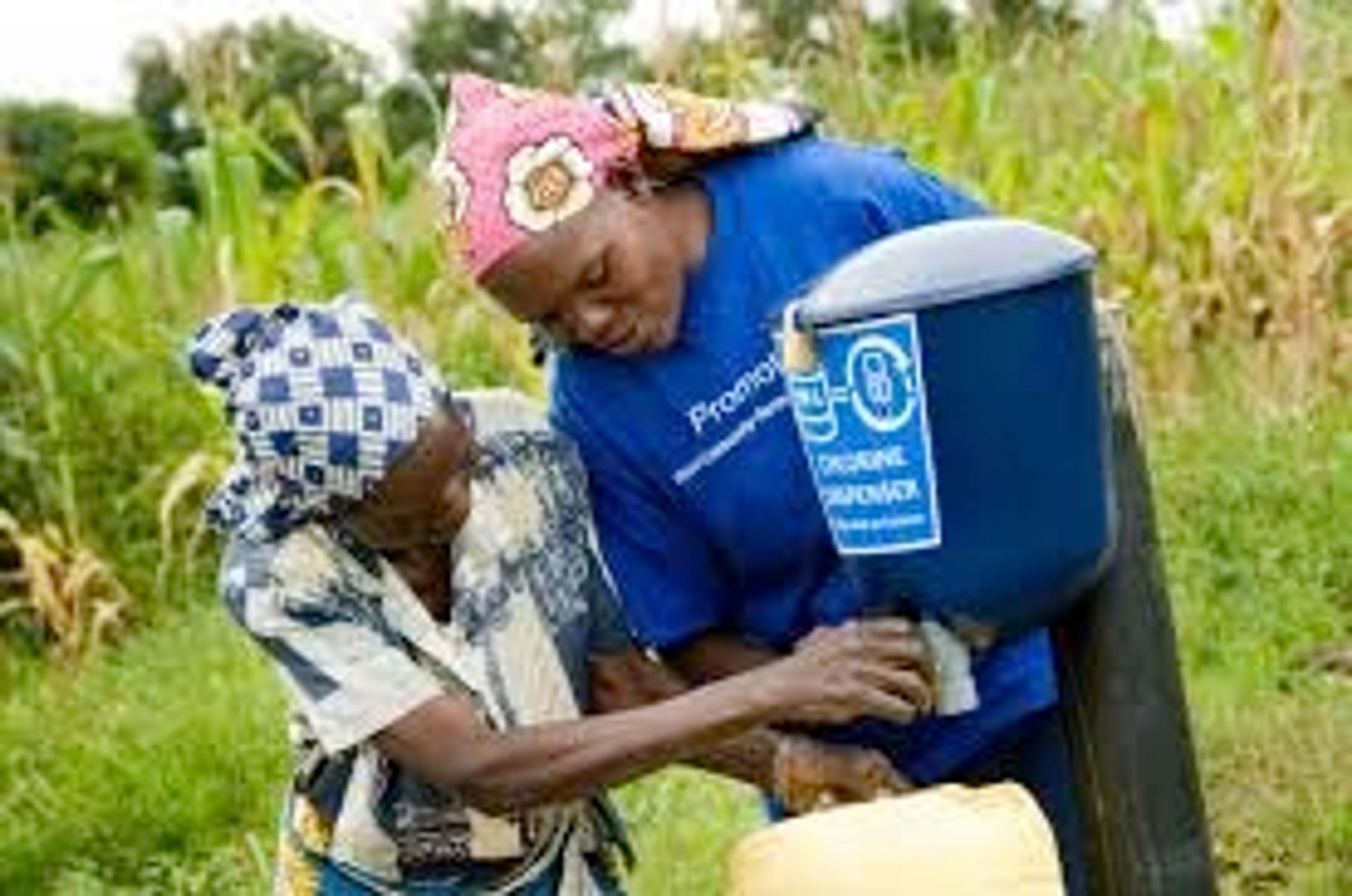Evidence Action, one of Giving What We Can’s recommended charities, is an organization which scales proven development interventions, and now leads both the Deworm the World Initiative and Dispensers for Safe Water (DSW). We will be keeping abreast of Evidence Action’s on-going endeavours through a series of monthly updates, of which this is the first. This month, the focus is on the progress made so far with their DSW program, the research behind it, and the sustainable financing methods employed to maintain it.
In many developing countries, central water infrastructure is not available or reliable, leading to unsafe water at the tap. In Uganda, for instance, approximately 29% of the rural population have no access to safe drinking water.
In such cases, decentralized water treatment can be used. This is where Evidence Action and their Dispensers for Safe Water (DSW) program come in.

DSW uses a proven and highly effective, low greenhouse gas emitting water purification technology (with chlorine), to increase access to safe drinking water. This product was developed following the observation that a mere 10% of the Kenyan population used chlorine for water purification, despite its known benefits. A research team set up in 2006 began to investigate the behaviour behind these patterns of (non-)use through a randomized controlled trial, and concluded that the population who received chlorine for free at the point of collection had a six-fold increase in use over the control group. Two years later, the high adoption rate was maintained. It was therefore determined that for uptake of a water purification product to be successful, it would need to be; a. free, b. easy to use, and c. located directly at the water source. Accordingly, the product currently used by DSW is just that.
DSW currently support a set of principles for water sector service delivery, Everyone Forever, which was developed to sustainably improve access to water services for approximately two million people in developing countries such as Kenya, Uganda and Malawi, at no cost to them. It involves:
- Universal access for every individual and institution starting at the district level (with the ultimate aim of covering a national level)
- Long-term indicators of sustainable service delivery; and
- Meaningful, financial engagement with communities and governments.
The DSW program works by:
- Explicitly seeking universal access in a district, meaning everyone in a district can quickly and easily walk to a chlorine dispenser at a water source. Typically, the aim is for more than one dispenser per square kilometre; conveniently, the denser a network of dispensers, the lower the running costs in that area. Universal access to dispensers may also reduce rates of recontamination during transport and storing of water in the home, ensuring that people can expect and receive safe drinking water.
- Ensuring ongoing maintenance and support.
- Ensuring financial sustainability with a plan to fund 100% of on-going service delivery costs from revenues earned from sales of carbon credits, together with fees for other services and public financing.
- Monitoring and accountability for on-going service.
As an example, 872 dispensers have so far been installed in the Hamisi District of Kenya, with 5.5 dispensers per square kilometre. This means that the household furthest from a dispenser is less than a 10 minute walk away.
Funding such a program requires innovative financing approaches. Carbon credits are thus generated from communities’ use of dispensers; as the technology consists of a clean water treatment, these credits can be sold to private companies seeking to offset their own emissions. This long-term revenue stream is reinvested in the program, covering all operations and maintenance costs. In this way, fully-loaded costs for operating dispensers reaching 25 million people will be covered by 2018.
Of note, Evidence Action was officially registered under South Pole Carbon’s International Water Purification Programme last month, to generate carbon credits for DSW in Uganda. The project is to be jointly registered with the Gold Standard Foundation, meaning that it meets the highest standards of sustainable development for the involved communities. This comes in addition to the existing registration status in Kenya.
Additional revenue streams, including bundling charges and local government contracting, may also ensure safe drinking water for communities without access to major piped systems. Engagement with local governments also takes place, relying on key decision makers for involvement in the initial setup process, promotion in the community, and direct financial contributions.
Finally, long-term commitment to monitoring, through a system enabling any community member to report a dispenser service delivery issue in real-time for resolution, contributes to the sustainability of the program. In Kenya, a 97% service uptime rate is achieved among the dispensers.
All in all, the DSW program owes its success to the granularity of Evidence Action’s initial investigation into the unmet needs in the area, and the development of a suitable solution to the problem. The program is maintained by the establishment of sustainable long-term revenue streams, which will allow its stable growth, district by district, reaching millions of people worldwide.